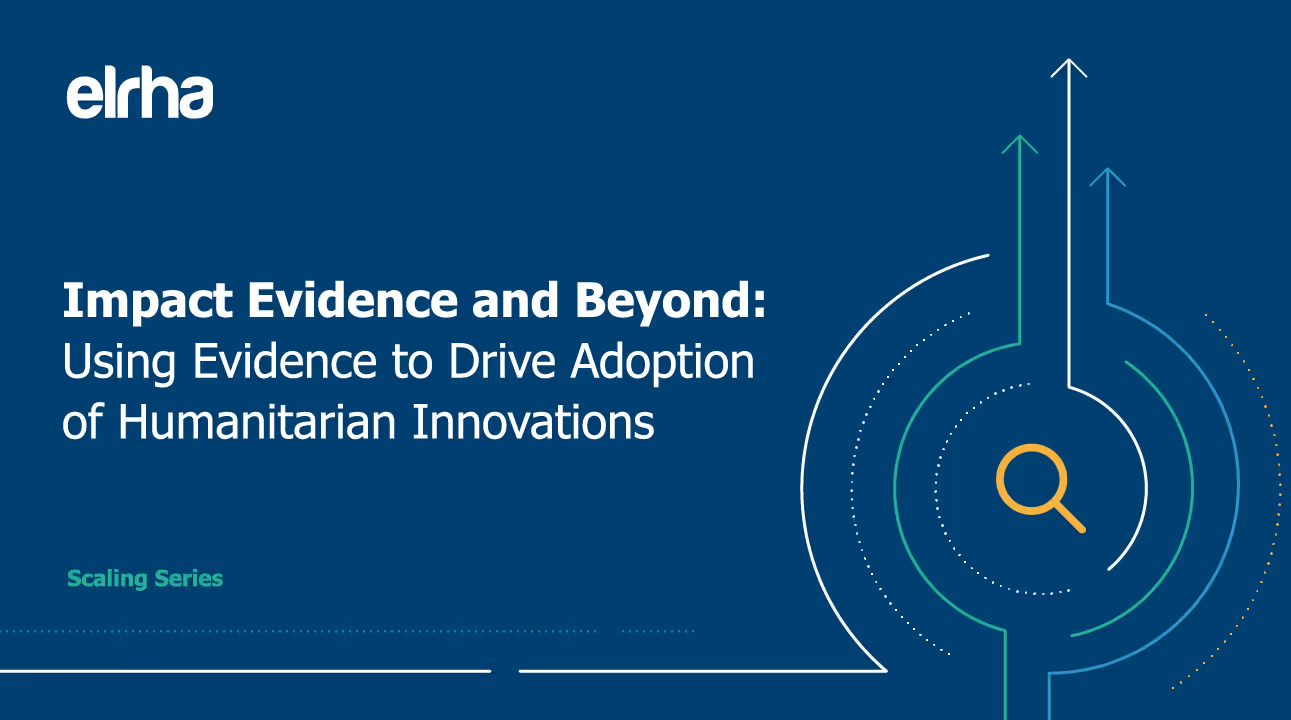Impact Evidence and Beyond: Using Evidence to Drive Adoption of Humanitarian Innovations (Scaling Series)

This learning paper provides guidance to humanitarian innovators on how to use evidence to enable and drive adoption of innovation.Innovation literature and practice show time and time again that it is difficult to scale innovations. Even when an innovation is demonstrably impactful, better than the existing solution and good value for money, it does not automatically get adopted or used in mainstream humanitarian programming.Why do evidence-based innovations face difficulties in scaling and how can innovators best position their innovation to scale?This learning paper is for innovators who want to effectively use evidence to support and enable their journey to scale. It explores the underlying social, organisational and behavioural factors that stifle uptake of innovations.It also provides guidance on how to use, prioritise and communicate evidence to overcome these barriers. The paper aims to help innovators generate and present their evidence in more tailored and nuanced ways to improve adoption and scaling of their innovations.
"Many barriers to scaling are simply out of innovators’ control. But what innovators can control is how they strategically shape perceptions of their solution to encourage stakeholders towards adoption."
This learning paper was prepared by DevLearn. We are grateful to the authors Kate Dodgson and Catie Crowley for their work on this paper, and to DevLearn’s team of advisors: Prof. John Bessant, Adam Kessler and Thomas Baar.We also thank all the people who contributed to the research, who generously shared their insights, experience, and recommendations through interviews and a workshop.The findings and recommendations within the report are those of the authors and may not necessarily reflect the position of Elrha.